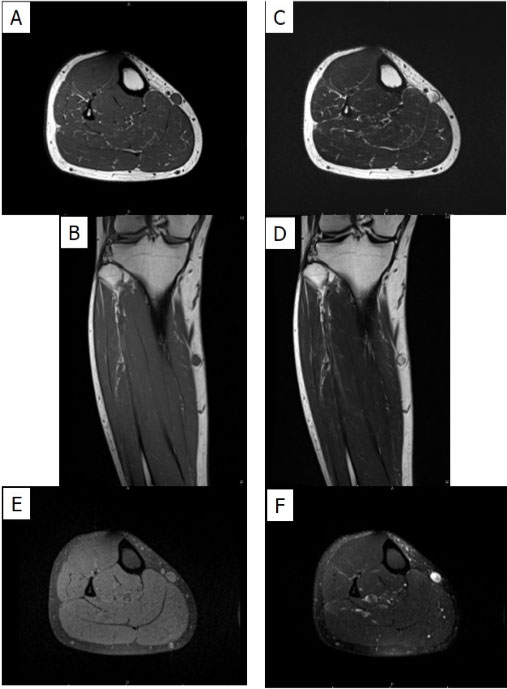 |
Case Report
Next-generation sequencing proves clonal relationship between two distinguished lung and liver carcinomas by standard histopathology approach
1 Department of Medicine, State University of New York Downstate Health Science University, Brooklyn, NY 11203, USA
2 Department of Pathology, State University of New York Downstate Health Science University, Brooklyn, NY 11203, USA
3 Division of Gastroenterology and Hepatology, State University of New York Downstate Health Science University, Brooklyn, NY 11203, USA
4 Banner MD Anderson Cancer Center, Banner University Medical Center, Phoenix, AZ 85006, USA
Address correspondence to:
Shivakumar Vignesh
Banner MD Anderson Cancer Center, Banner University Medical Center, Phoenix, AZ 85006,
USA
Message to Corresponding Author
Article ID: 100064Z11TL2022
Access full text article on other devices

Access PDF of article on other devices

How to cite this article
Li T, Diks J, Nguyen ST, Zeng J, Chen N, Vignesh S. Next-generation sequencing proves clonal relationship between two distinguished lung and liver carcinomas by standard histopathology approach. J Case Rep Images Pathol 2022;8(2):6–11.ABSTRACT
Introduction: Two tumors having different histopathologies at anatomically distinct sites giving the picture of dual primary malignancies. Here we presented a case of two possible primary tumors and one secondary mass.
Case Report: A 74-year-old female, active smoker, without personal or family cancer history presented with early satiety and weakness for two months. Systems review was positive for a “raw” feeling in stomach, alleviated with antacids. Vital signs were stable with a negative abdominal exam. Lab showed leukocytosis 24.8 K/uL (3.5–10.8 K/uL) with left shift, microcytic anemia with hemoglobin 6.1 g/dL (12.0–16.0 g/dL), and reactive thrombocytosis 477 K/uL (130–400 K/uL). Contrast-enhanced computed tomography (CT) showed right upper lobe necrotizing cavitating lesion with reactive mediastinal and right hilar lymphadenopathy, two irregular hypodense lesions in pancreatic head and tail without ductal dilation with two irregular hypodense liver lesions. Immunohistochemistry of lung and pancreatic lesions were biopsied through endoscopic ultrasound (EUS), consistent with poorly differentiated squamous cell carcinoma (SCC) with extensive necrosis, which indicates pancreatic masses are likely metastases from the lung. Liver lesion biopsy exhibited high-grade neuroendocrine tumor (NET) with focal necrosis. Next gene sequencing was pursued. Given poor functional status, palliative immunotherapy was offered; however, the patient succumbed to respiratory failure.
Conclusion: Given the morphology and immunoprofile, differential diagnosis includes dual primary cancers with one metastasis, or primary SCC with metastasis with neuroendocrine differentiation. Despite having different histopathology and immunophenotype, both lung and liver tumors harbor the same molecular profile even at the variants of unknown significance that show identical mutations. As a result, they are directly related. TP53, RB1, MYCL1, and MEK1 mutations are more prevalent in SCC than NET. Tumor mutation burden values may vary as the tumor clonal structure varies between primary and metastatic sites, with higher rates of monoclonal structure recorded in metastases due to clonal selection, leading to a reduction in overall genetic diversity (“bottlenecking”). This raises the suspicion that the liver tumor is a SCC with neuroendocrine differentiation. The paucity of the specimen and rapid clinical course limited further investigation. Germline testing would have been useful to determine whether these findings are somatic or germline.
Keywords: Genetic predisposition, Liver neuroendocrine tumor, Lung non-small cell carcinoma, Multiple primaries, Neoplasms, Pancreatic carcinoma
SUPPORTING INFORMATION
Author Contributions
Tian Li - Acquisition of data, Analysis of data, Drafting the work, Revising the work critically for important intellectual content, Final approval of the version to be published, Agree to be accountable for all aspects of the work in ensuring that questions related to the accuracy or integrity of any part of the work are appropriately investigated and resolved.
John Diks - Analysis of data, Drafting the work, Revising the work critically for important intellectual content, Final approval of the version to be published, Agree to be accountable for all aspects of the work in ensuring that questions related to the accuracy or integrity of any part of the work are appropriately investigated and resolved.
Snow Trinh Nguyen - Analysis of data, Revising the work critically for important intellectual content, Final approval of the version to be published, Agree to be accountable for all aspects of the work in ensuring that questions related to the accuracy or integrity of any part of the work are appropriately investigated and resolved.
Jianying Zeng - Analysis of data, Revising the work critically for important intellectual content, Final approval of the version to be published, Agree to be accountable for all aspects of the work in ensuring that questions related to the accuracy or integrity of any part of the work are appropriately investigated and resolved.
Neil Chen - Analysis of data, Revising the work critically for important intellectual content, Final approval of the version to be published, Agree to be accountable for all aspects of the work in ensuring that questions related to the accuracy or integrity of any part of the work are appropriately investigated and resolved.
Shivakumar Vignesh - Conception of the work, Design of the work, Revising the work critically for important intellectual content, Final approval of the version to be published, Agree to be accountable for all aspects of the work in ensuring that questions related to the accuracy or integrity of any part of the work are appropriately investigated and resolved.
Guarantor of SubmissionThe corresponding author is the guarantor of submission.
Source of SupportNone
Consent StatementWritten informed consent was obtained from the patient for publication of this article.
Data AvailabilityAll relevant data are within the paper and its Supporting Information files.
Conflict of InterestAuthors declare no conflict of interest.
Copyright© 2022 Tian Li et al. This article is distributed under the terms of Creative Commons Attribution License which permits unrestricted use, distribution and reproduction in any medium provided the original author(s) and original publisher are properly credited. Please see the copyright policy on the journal website for more information.





